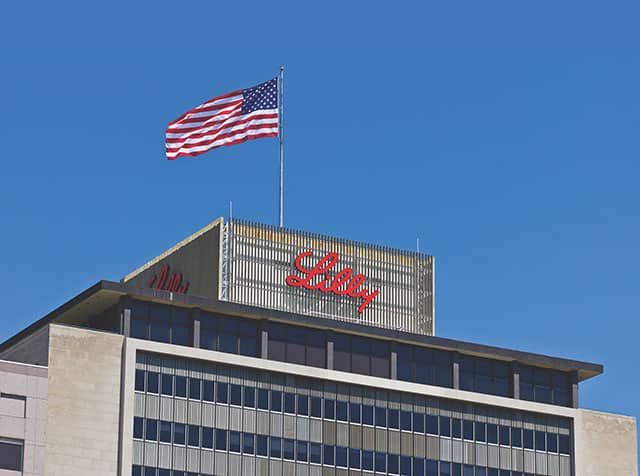
Eli Lilly has formed a strategic collaboration worth more than $1.6bn in R&D milestones with Lycia Therapeutics to use its proprietary lysosomal targeting chimera (LYTAC) protein degradation technology to discover, develop and commercialise targeted therapeutics.
The multi-year research collaboration and licensing agreement will see Lilly pay $35m upfront, $1.6bn in milestone payments and tiered royalties “from mid-single to low double-digits” on future sales.
“This collaboration with Lycia furthers Lilly’s strategy to utilise innovative new technology to treat challenging disease areas, such as immunology and pain,” said Lilly VP of immunology, Ajay Nirula. “We believe Lycia’s technology may allow us to develop targeted therapeutics that were not previously feasible and make advances for patients in areas of high unmet need.”
Lycia’s LYTAC platform has the potential to “enable the development of several therapeutic modalities”, said Lilly. These include antibodies and small molecules with the potential to inhibit many targets previously considered intractable across a spectrum of therapeutic areas and diseases.
Under the deal, Lilly will be solely responsible for preclinical and clinical development of candidates and receives an exclusive worldwide licence to commercialise potential medicines resulting from the agreement.
Headquartered in South San Francisco, Lycia was only established two years ago and is fronted by Stanford University professor of chemistry, Carolyn Bertozzi, who has helped found a range of companies focused on glycoscience since 2008.
LYTAC protein degraders harness the cell’s lysosomal trafficking and degradation pathway to target both soluble and membrane-bound extracellular proteins, with applications including targeting challenging membrane proteins, clearing pathogenic immune complexes in circulation and depleting antibodies to specific antigens of interest.
Put more simply, LYTACs ‘grab’ proteins and ‘drag’ them into the cell where they are destroyed by the lysosome, said Lycia CEO Aetna Wun Trombley.
Big pharma has become very interested in protein degradation recently, and the Lilly/Lycia deal is the fourth in a year that has seen Roche and Vividion, Sanofi and Kymera and Pfizer and Arvinas team up to focus on ‘undruggable’ targets.




